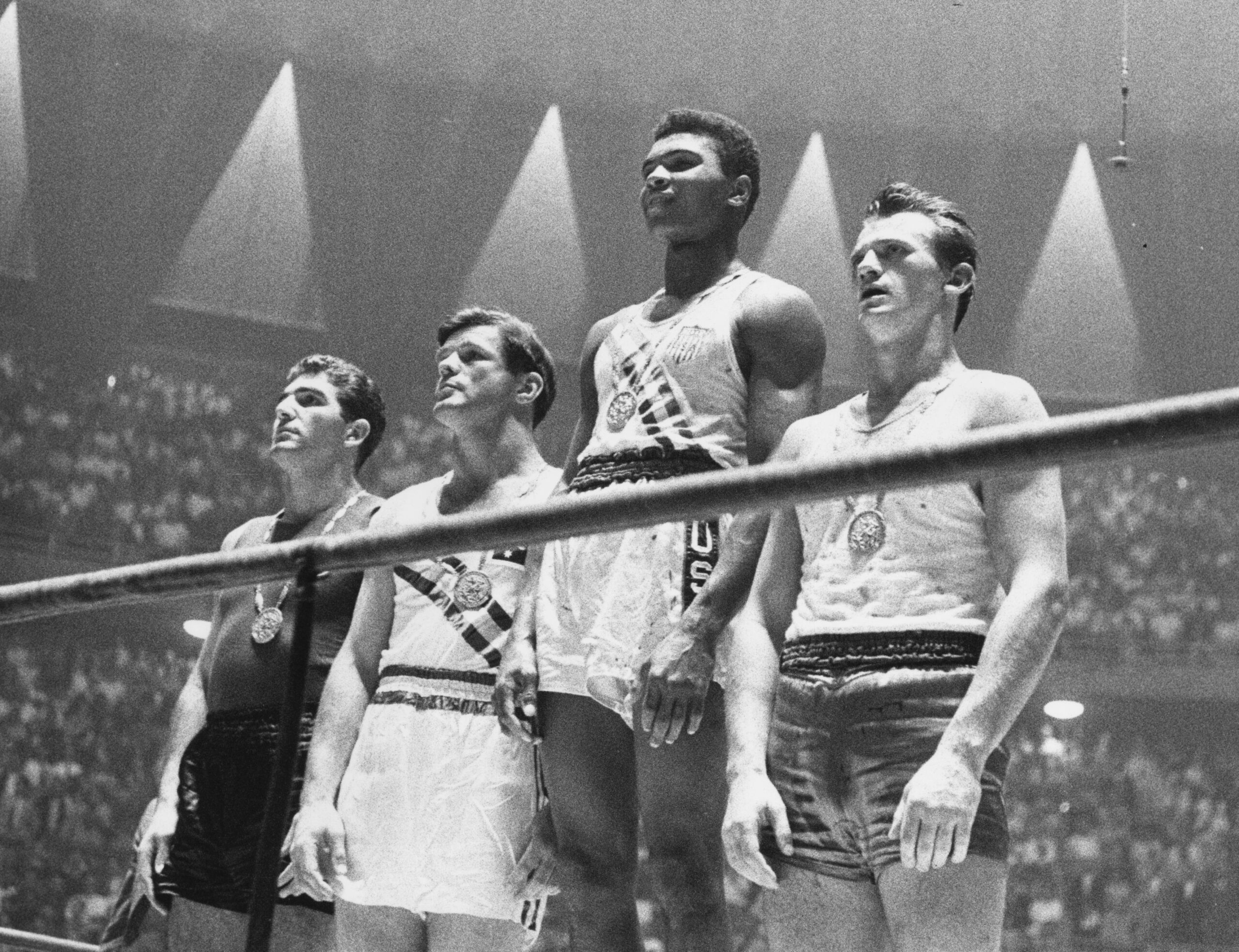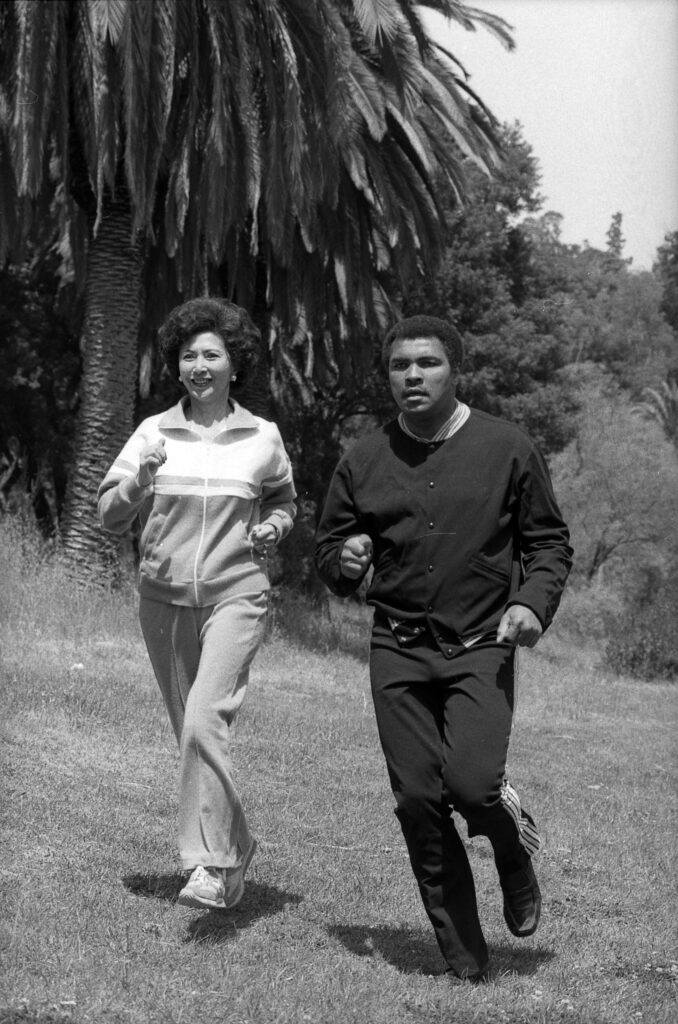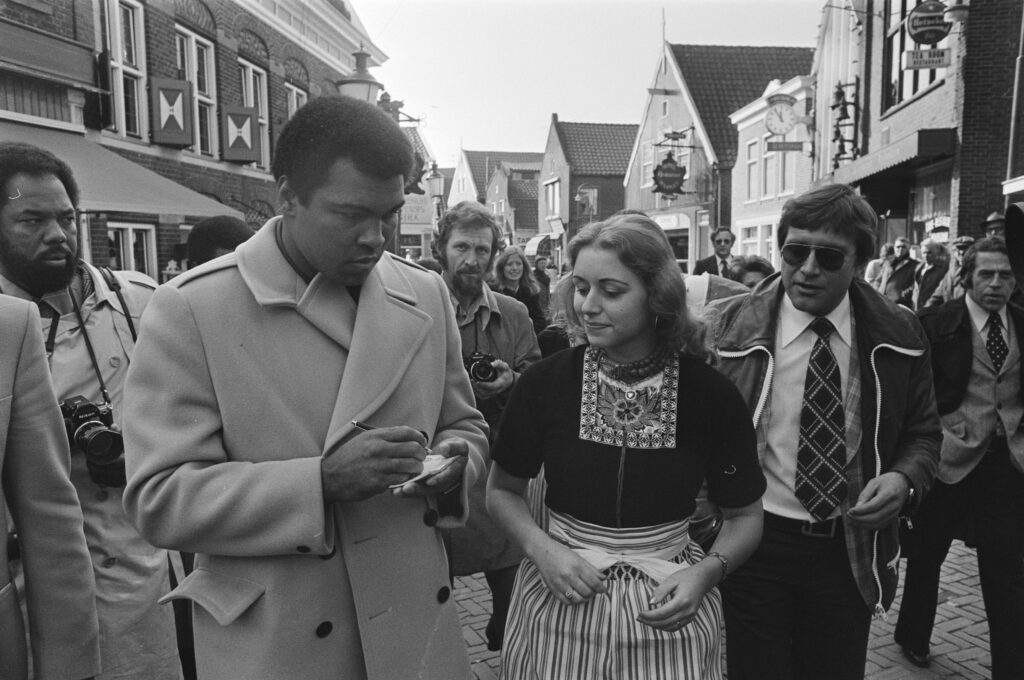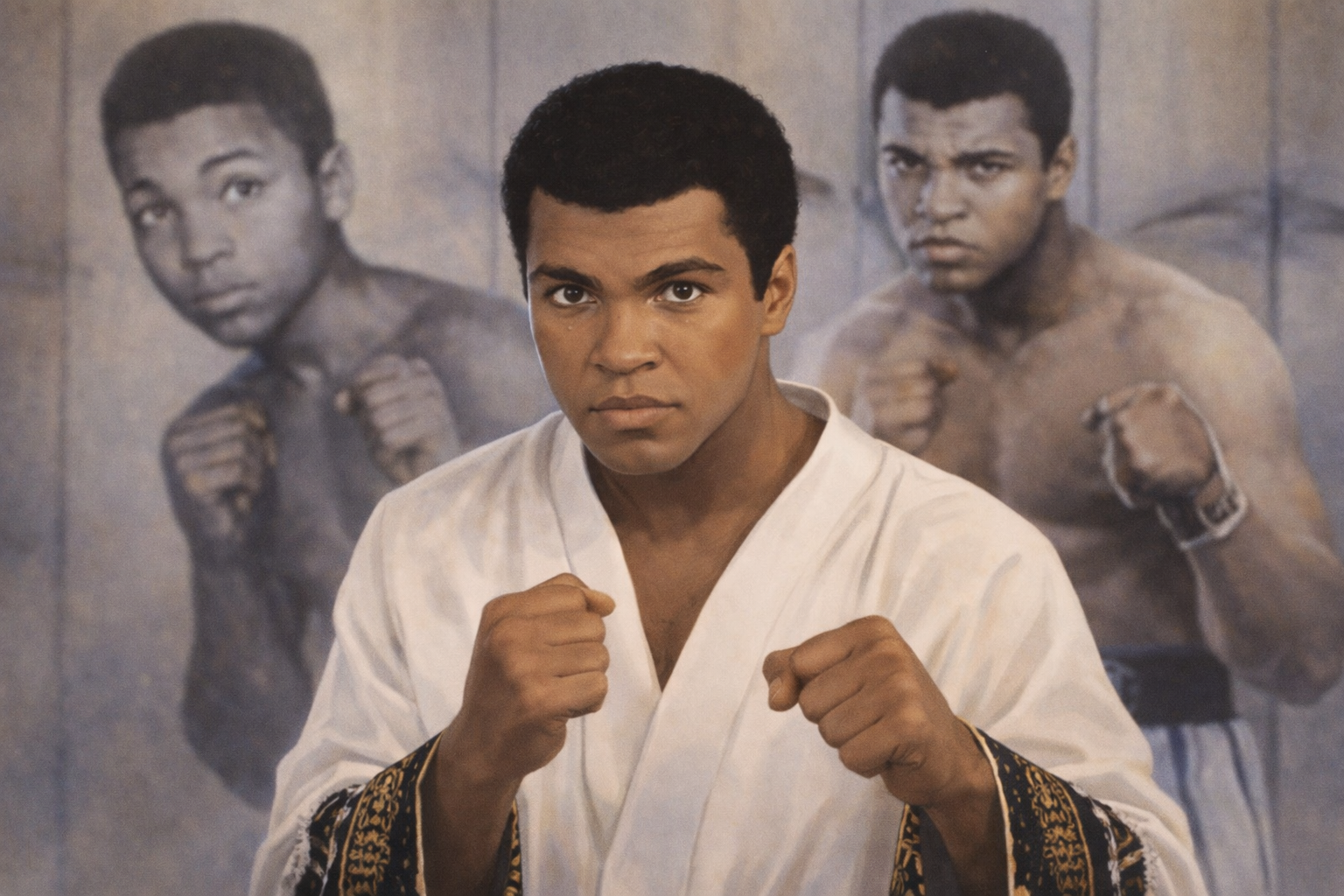Born Cassius Marcellus Clay Jr. on January 17, 1942, in Louisville, Kentucky, Muhammad Ali’s story began far from the roars of the world’s arenas.
At age twelve, when his bike was stolen, he told a police officer — who happened to be a boxing coach — that he wanted to “whup” the thief. The officer replied,
“First, you better learn to fight.”
This moment sparked Ali’s lifelong journey into boxing—transforming a stolen bike into the beginning of a legend.
The World Heavyweight Champion
By 1960, Ali had danced his way to an Olympic gold medal in Rome. Turning professional soon after, his style was unlike anything the boxing world had seen — light on his feet, hands like lightning, a tongue as sharp as his jab.
“Float like a butterfly, sting like a bee. The hands can’t hit what the eyes can’t see.”
In 1964, at the age of 22, Ali stunned the world by defeating the heavily favored Sonny Liston to become the world heavyweight champion.
Cassius Clay to Muhammad Ali
Shortly after this victory, he announced his conversion to Islam and changed his name from Cassius Clay to Muhammad Ali.
Ali’s greatness was not confined to the ring. In 1967, at the height of his career, he refused to be drafted into the Vietnam War, declaring:
“I ain’t got no quarrel with them Viet Cong. No Viet Cong ever called me [racial slur].”
The decision cost him his title, his boxing license, and nearly four years of his prime. But he stood unshaken:
“I know where I’m going and I know the truth, and I don’t have to be what you want me to be. I’m free to be what I want.”
When he returned in 1970, the world had changed — and so had Ali. He fought wars in the ring as fierce as those outside it. His battles with Joe Frazier, culminating in the brutal “Thrilla in Manila” in 1975, and his legendary Rumble in the Jungle victory over George Foreman in 1974, became immortal chapters in boxing history.
“It’s not bragging if you can back it up.”
Ali’s final years in the ring were marked by fading speed but an undying heart. He retired from boxing in 1981 with a professional record of 56 wins (37 by knockout) and 5 losses.




Final years and Legacy
In 1984, he was diagnosed with Parkinson’s disease, likely a result of repeated head trauma. Despite his declining health, Ali remained active in humanitarian causes, advocating for peace, civil rights, and global understanding.
In the decades that followed, he traveled the world on goodwill missions.
“Service to others is the rent you pay for your room here on Earth.”
Despite battling Parkinson’s disease, Ali was chosen to light the Olympic flame at the 1996 Atlanta Olympics. With trembling hands, he lifted the torch high, inspiring millions with his strength and dignity.
The crowd erupted in a thunderous ovation. It became one of the most emotional moments in Olympic history—a symbol of courage that transcended sports.
Muhammad Ali passed away on June 3, 2016, at the age of 74. The world mourned the loss of a man who was not just a legendary athlete but a symbol of courage, conviction, and compassion.
The rhythm of his words, the music of his movement, and the courage of his convictions still echo in the hearts of millions.
“He who is not courageous enough to take risks will accomplish nothing in life.”
“It isn’t the mountains ahead to climb that wear you out; it’s the pebble in your shoe.”
“I wish people would love everybody else the way they love me. It would be a better world.”
“I’ve always tried to be good to everyone no matter their color, religion, or position in life. Though some people may see themselves as better or more important than others, in God’s eyes we are all equal, and it’s what is in our hearts that matter.”
– The Soul of a Butterfly
